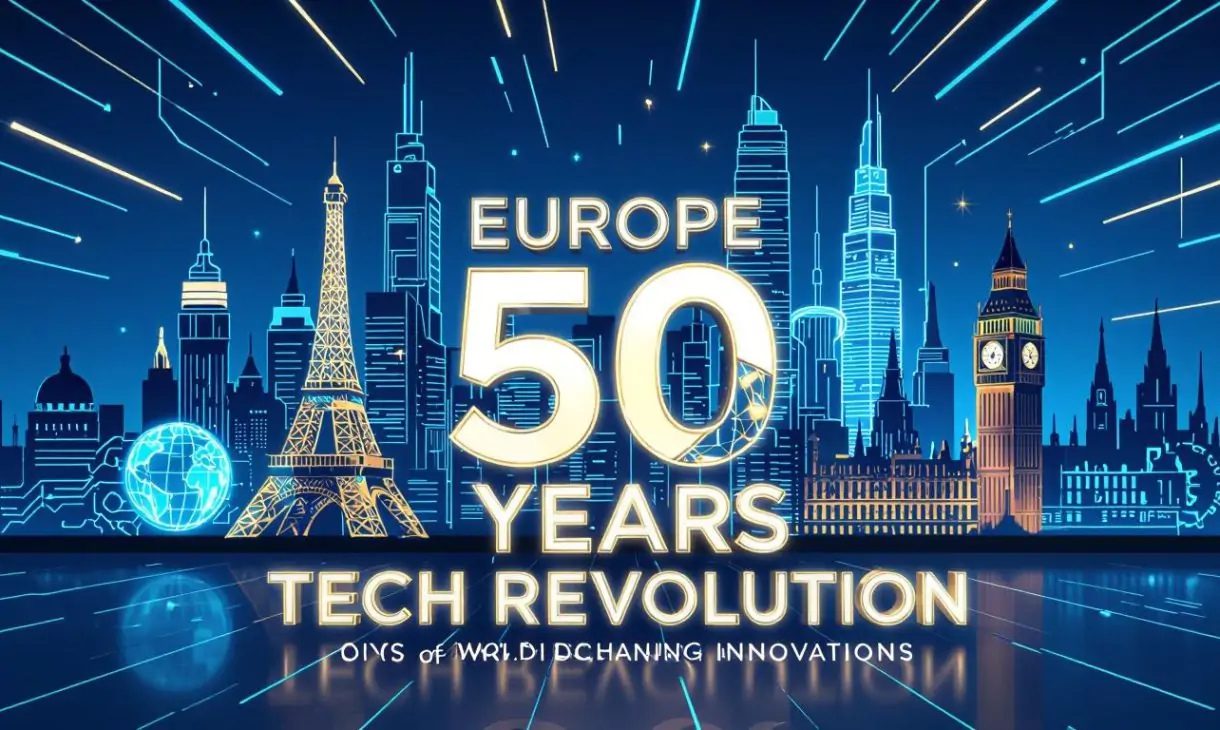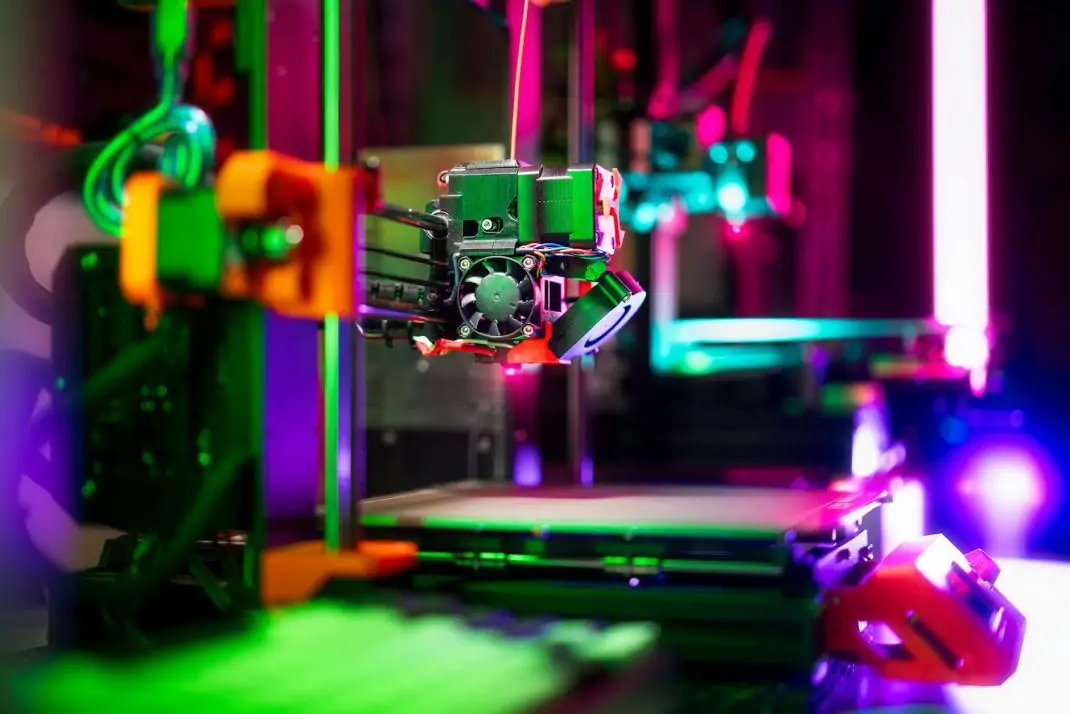Alright, let's address the elephant in the room. When we think of world-changing tech, our minds often jump to Silicon Valley's hoodie-clad billionaires or Japan's high-tech giants. Europe? We picture ancient castles, incredible food, and maybe a really fast car. It’s easy to assume that after World War II, Europe just kinda… retired from the tech innovation game.
But hold up. That’s a massive, and frankly, a completely wrong take.
So, how has Europe advanced technology in the last 50 years? Buckle up, because we’re about to take a joyride through a continent that’s been innovating harder than a German engineer on a third espresso.
Also read: Get vivo V60 on Easy EMIs This Ganesh Chaturthi: Big Celebrations, Small Payments
The Underestimated Tech Titan: Europe's Quiet Dominance
First, a little context. It's true that the 20th century saw a seismic shift in technological leadership across the Atlantic. The reasons are complex—a post-war boom in the U.S., massive government investment in defense tech, and the rise of a unique venture capital ecosystem.
But to say Europe was just watching from the sidelines is pure nonsense. Let’s talk credentials. We’re talking about companies that are literal pillars of global industry: Siemens, Philips, Airbus, Nokia, and Ericsson. These aren't small startups; they're behemoths.
And the awards don't lie. Of the winners of the prestigious American Charles Stark Draper Prize in engineering, a solid nine have been based in Europe. Even more impressive? Of the last 30 years of the Lasker-DeBakey Clinical Medical Research Award (basically the pre-game show for a Nobel Prize), 14 winners hailed from Europe. That’s not just participating; that’s showing up and taking home the trophy.
So, what exactly have they been building? Let's get into the good stuff.
Also read: Expert Insights on Generative AI Video Tools
Medical Marvels: How European Tech Saves Lives
If you’ve ever taken an ibuprofen for a headache, you can thank the UK. If you know someone whose life was saved by a portable defibrillator or a CT scan? Thank the UK again. Europe’s contribution to medicine is nothing short of staggering.
-
The Pill Party: France gave us the abortion pill (RU-486). The UK delivered Tamoxifen for breast cancer and, ahem, Viagra—because even medical miracles need a fun side.
-
Making Babies & Cloning Sheep: The world’s first "test-tube baby" was born thanks to British in-vitro fertilization (IVF) tech. And who could forget Dolly the sheep? The first cloned mammal, born in Scotland in 1996.
-
The Drug Development Hub: Seriously, the UK alone is responsible for a fifth of the world’s top 100 drugs. According to Nature, half of all drugs are developed in Europe and Japan.
Digital & Computing: The European Foundations of Our Online World
This is where everyone gets it wrong. We think the internet is 100% American. Think again.
-
The Big One: A British man, Tim Berners-Lee, invented the World Wide Web at CERN in Switzerland. The entire structure of how we access information online is a European invention. Full stop.
-
The Soundtrack of Your Life: That MP3 you pirated in the 2000s? Germany. The Spotify playlist you streamed today? Sweden. Shazam that song? UK. Your entire musical existence is curated by Europe.
-
The Devices & The Code: The Raspberry Pi and Arduino that power a million DIY projects? UK and Italy. The ARM architecture that’s in your phone and tablet? Yep, UK.
Telecommunications: Connecting the World, the European Way
Before "5G" was a buzzword, Europe was defining mobile communication for the entire planet.
-
The GSM standard, SMS messaging, and the humble SIM card are all Franco-German innovations that made global mobile communication possible.
-
Bluetooth (Sweden) and crucial research behind Wi-Fi (Netherlands) untangled our wires and connected our devices seamlessly.
-
Skype (born from Swedish and Estonian minds) revolutionized long-distance communication long before Zoom was a thing.
Transportation & Safety: European Engineering on the Road and in Space
European engineering isn’t just about luxury sedans. It’s about reimagining how we move—safely.
-
Safety First: The modern airbag and anti-lock braking system (ABS)? Both from Germany. They’re not just about going fast; they’re about making sure you survive the ride.
-
Space Race, Part 2: The Soviet Union (a major part of Europe) achieved the first soft landings on Venus and Mars. More recently, the European Space Agency landed a probe on a freaking comet.
Everyday Innovations: The European Tech in Your Home
Europe’s innovations are woven into the fabric of our daily lives in the most mundane—yet essential—ways:
-
Whipping up a smoothie in a food processor? Thank France.
-
Enjoying a nitro-style beer from a can with a widget in it? Thank Ireland.
-
Cleaning up with a Dyson cyclonic vacuum? The UK strikes again.
-
Paying with contactless smart card tech? Invented in Germany/France.
Summary Table: Key European Technological Innovations (Last 50 Years)
| Category |
Innovation |
Year |
Country |
| Medical |
Portable Defibrillator |
1964 |
UK |
| In-Vitro Fertilization (IVF) |
1978 |
UK |
| Abortion Pill (RU-486) |
1980 |
France |
| Computing/Digital |
World Wide Web |
1989 |
Switzerland/UK |
| Linux Kernel |
1991 |
Finland |
| MP3 Format |
1995 |
Germany |
| Raspberry Pi |
2012 |
UK |
| Telecom |
GSM Standard / SIM Card |
1980s |
France/Germany |
| Bluetooth |
1994 |
Sweden |
| Skype |
2003 |
Sweden/Estonia |
| Transport/Safety |
Modern Airbag |
1971 |
Germany |
| Anti-lock Braking (ABS) |
1978 |
Germany |
| Comet Landing (Rosetta) |
2014 |
ESA (Europe) |
| Everyday Tech |
Smart Card |
1970s |
Germany/France |
| Cyclonic Vacuum |
1978 |
UK |
| Coffee Pod Machine |
1972 |
Italy |
Conclusion: The Unseen Backbone of Modern Technology
So, has Europe advanced any technology in the last 50 years? Is the Pope… well, European?
The narrative that Europe fell behind is a classic case of mistaking the loudest voice in the room for the only one. While the U.S. perfected the art of the software platform and the startup IPO, Europe became the master of the deep-tech infrastructure, medical breakthroughs, and the physical engineering that the modern world is built upon.
They may not always shout the loudest about their achievements, but from the moment you wake up to your European-invented alarm, take your European-developed medicine, and check the web on your European-founded internet, you’re living in a world shaped profoundly by European innovation.
They didn't just advance technology; they built the unnoticed bedrock of our modern lives. And that’s pretty awesome.


















